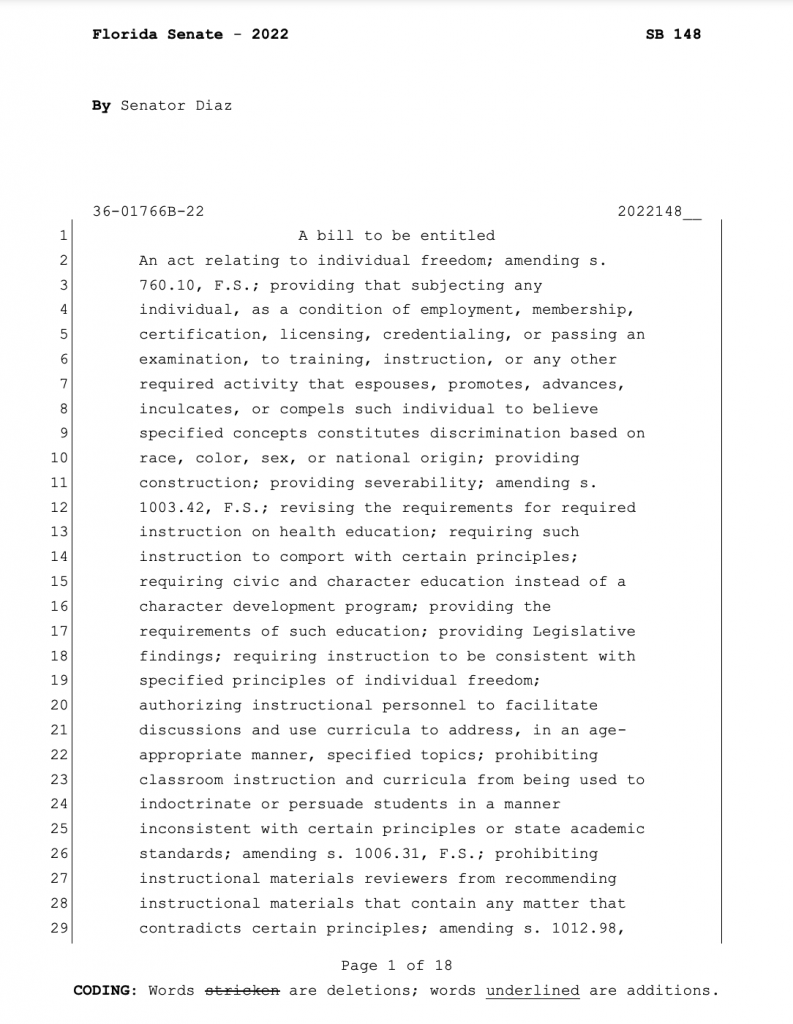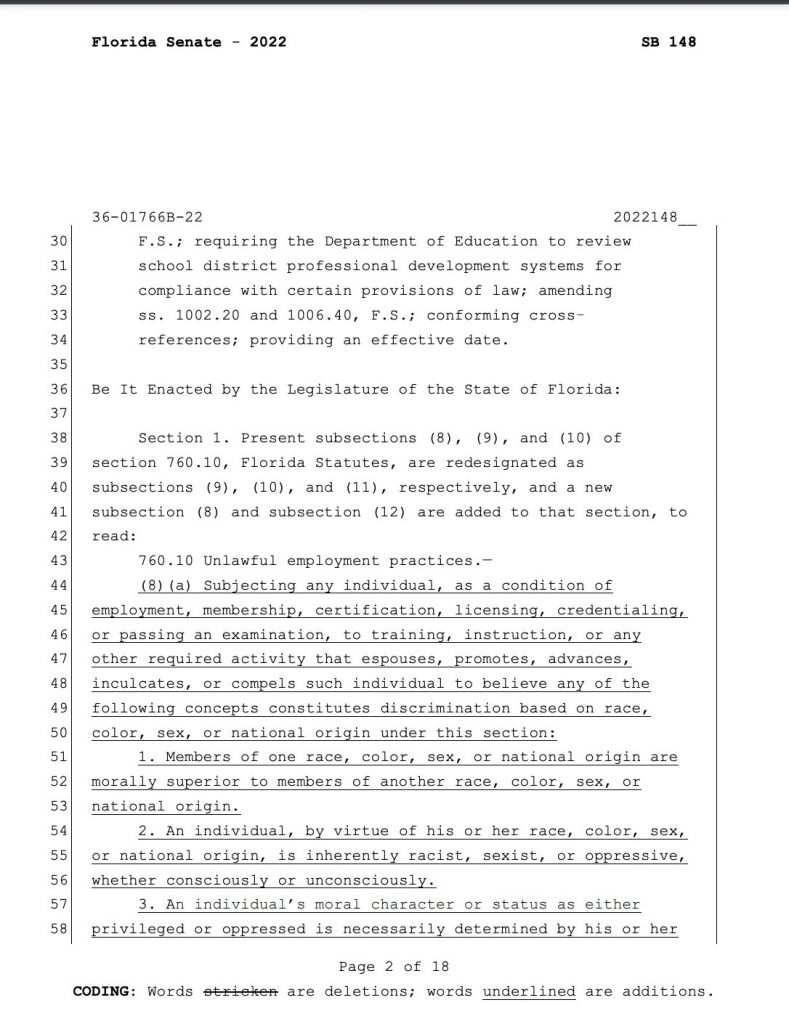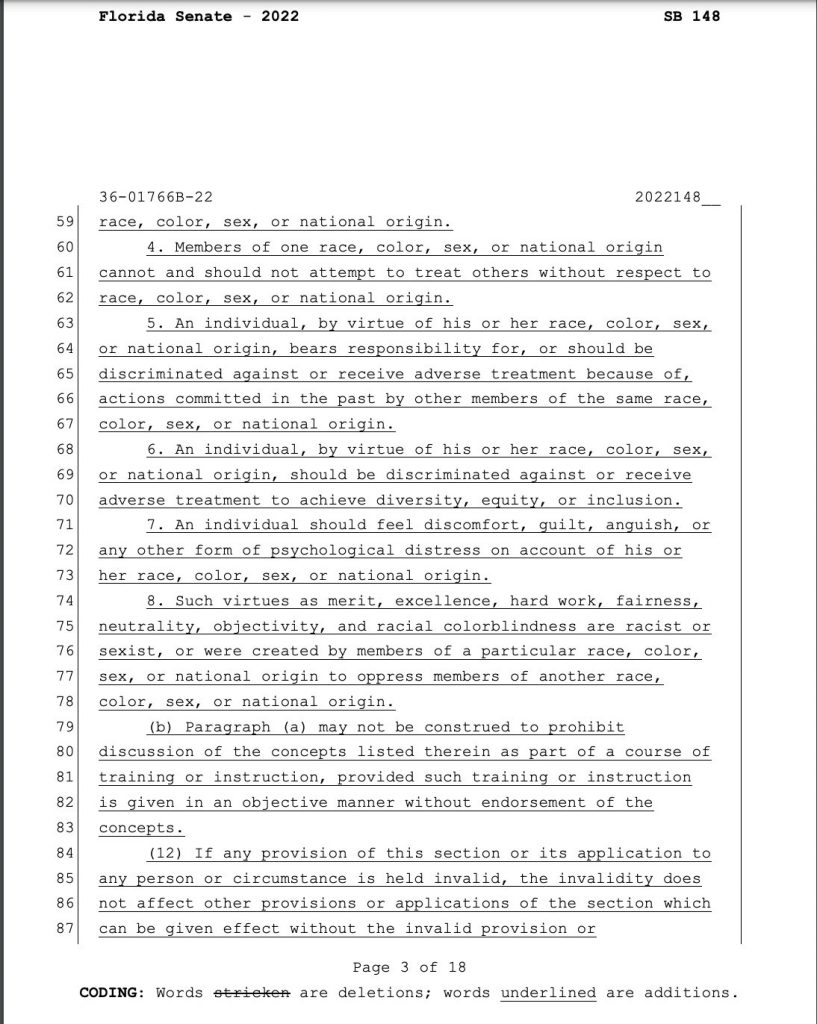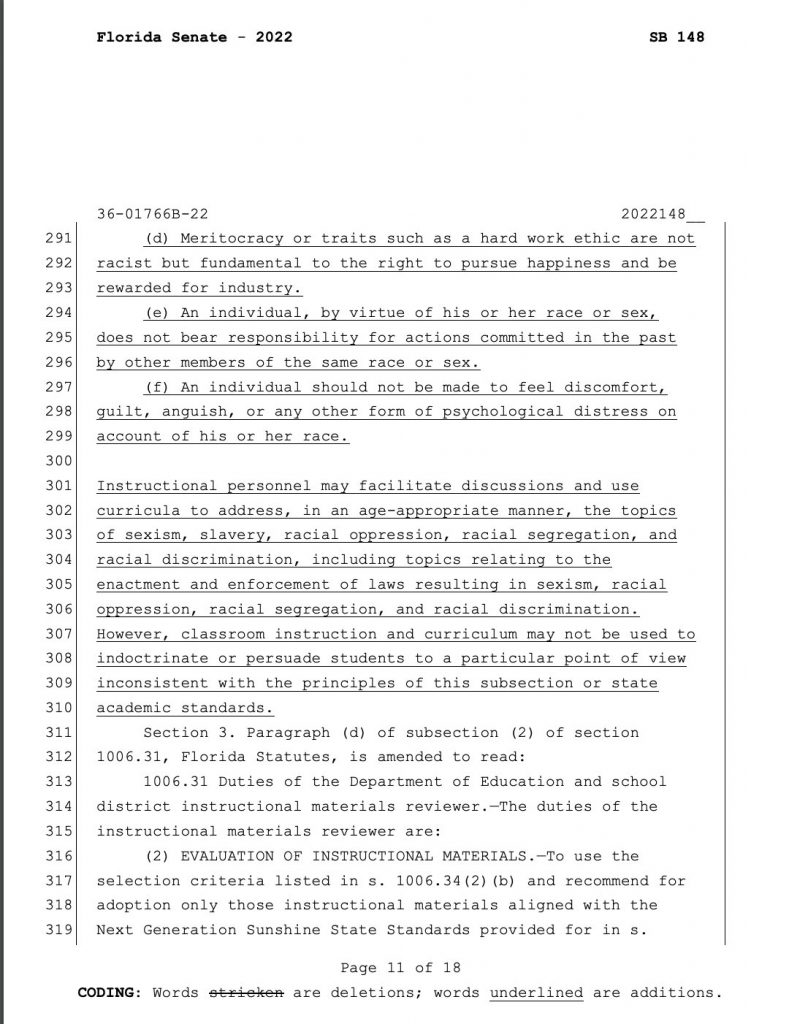See Florida’s New Plan To Ban Critical Race Theory
The fight to ban critical race theory (CRT) in public schools continues in the state of Florida. A bill, backed by Republican Florida Governor Ron DeSantis, has just been approved by the state Senate Education Committee and it is aimed directly at public schools and private businesses. The bill, if passed, would prohibit private businesses and public schools from making people feel any sort of “discomfort” while training employees or teaching students about discrimination in our country’s tainted past.

The fight to ban critical race theory (CRT) in public schools continues in the state of Florida. A bill, backed by Republican Florida Governor Ron DeSantis, has just been approved by the state Senate Education Committee and it is aimed directly at public schools and private businesses. The bill, if passed, would prohibit private businesses and public schools from making people feel any sort of “discomfort” while training employees or teaching students about discrimination in our country’s tainted past.
In a vote that followed party lines – Republicans voted in favor while Democrats did not – Democrats argued that the bill wasn’t even needed. They feel CRT isn’t in schools and the passage of Senate Bill 148 would only lead to frivolous lawsuits. They also claim that it would amount to censorship in public schools. To prove their point before a vote was taken, they asked for real-life examples of businesses or teachers telling employees or students that because of their race they are racist. No examples were given.
“This bill’s not for Blacks, this bill was not for any other race. This was directed to make Whites not feel bad about what happened years ago,” said state Senator Shevrin Jones via CBS News. Senator Jones is Black. “At no point did anyone say White people should be held responsible for what happened, but what I would ask my White counterparts is, are you an enabler of what happened or are you going to say we must talk about history?”
Proponents of the bill note that, despite claims to the contrary, at no point anywhere in the bill does it mention “white people”. You can read the bill for yourself, below…
The entire Florida Senate Bill 148 can be read here.
The Florida bill against critical race theory reads in part, “An individual, by virtue of his or her race or sex, does not bear responsibility for actions committed in the past by other members of the same race or sex. An individual should not be made to feel discomfort, guilt, anguish, or any other form of psychological distress on account of his or her race.”
Just last month, Gov. DeSantis held a news conference (one of his many) where he called critical race theory a bunch of “crap.” He then announced that he would seek legislation that would allow employees to sue employers and parents to sue public schools if employees or children were subject to any CRT teachings.
The Florida SB 148 bill is titled “Individual Freedom” and was sponsored by Republican Senator Manny Diaz Jr. He explained the reasoning behind the bill, stating its intention is not to ignore the “dark” parts of our American history, but instead to ensure that people are not to be blamed for the horrible sins of the past.
“No individual is inherently racist, sexist or oppressive, whether consciously or unconsciously, solely by the virtue of his or her race or sex,” Diaz said. “No race is inherently superior to another race.”
Even CRT supporters agree that viewing America’s history through the lens of racism is what Critical Race Theory promotes. The current theory’s origin is widely credited to Kimberlé Williams Crenshaw, a law professor at the U.C.L.A. School of Law and Columbia Law School. According to Crenshaw, she says via The New York Times CRT is “a way of seeing, attending to, accounting for, tracing and analyzing the ways that race is produced, the ways that racial inequality is facilitated, and the ways that our history has created these inequalities that now can be almost effortlessly reproduced unless we attend to the existence of these inequalities.” It has since, however, taken on a life of its own, the ideology being applied in new ways by other activists.
While going all-in on the Florida bill against Critical Race Theory, Gov. DeSantis last month referred to the words of the late civil rights activist, Martin Luther King Jr. saying, “You think about what MLK stood for. He said he didn’t want people judged on the color of their skin but on the content of their character. You listen to some of these people nowadays, they don’t talk about that.”







